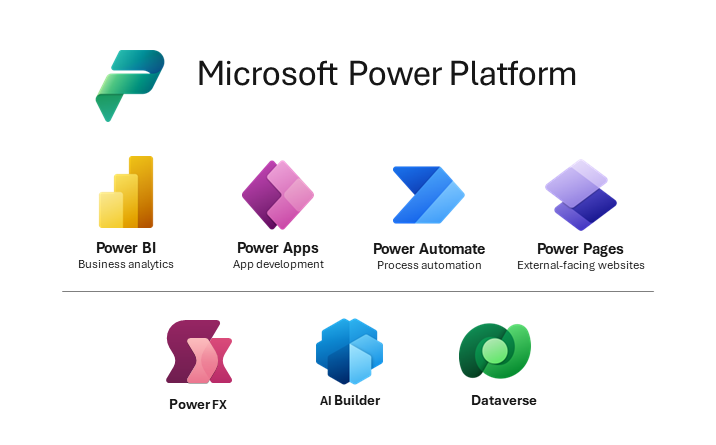
Microsoft Power Platform
Key Products
- Power Apps - For web and mobile apps. PowerApps is a low-code/no-code platform to create apps quickly. Its data can live in SharePoint, Dynamics, M365, or anywhere. Its language is PowerFX (like Excel formulas). Power apps are canvas apps (any data) and model-driven apps (Dataverse only).
- Power Automate - Workflows to automate work tasks.
- Power BI - Data dashboards and reports.
- Power Pages - For websites.
Supporting Tools
- Copilot Studio [Power Virtual Agents] - Tool to automate the automation.
- Connectors - Connect to Dropbox, Twitter, etc. Approx 900.
- AI Builder - Add AI functionality to Power Automate and Power Apps.
- Dataverse - Backend data for Power Platform.
- Power FX - Programming language for Power Platform.
A typical power platform project
Receive invoice emails from vendors (Office 365 Outlook) -> Store attachments in SharePoint (Microsoft SharePoint) -> Send for approval in Teams (Microsoft Teams) -> Enter approved invoices in ERP (Oracle) -> Send confirmation email to vendors (Office 365 Outlook)
Dataverse
- Dataverse ~ Power Platform DB.
- Tables: Standard (OOTB), managed (part of a solution, read-only), custom.
- 4TB storage limit.
- You can apply business logic to tables! E.g., If country is US, then postal code mandatory.
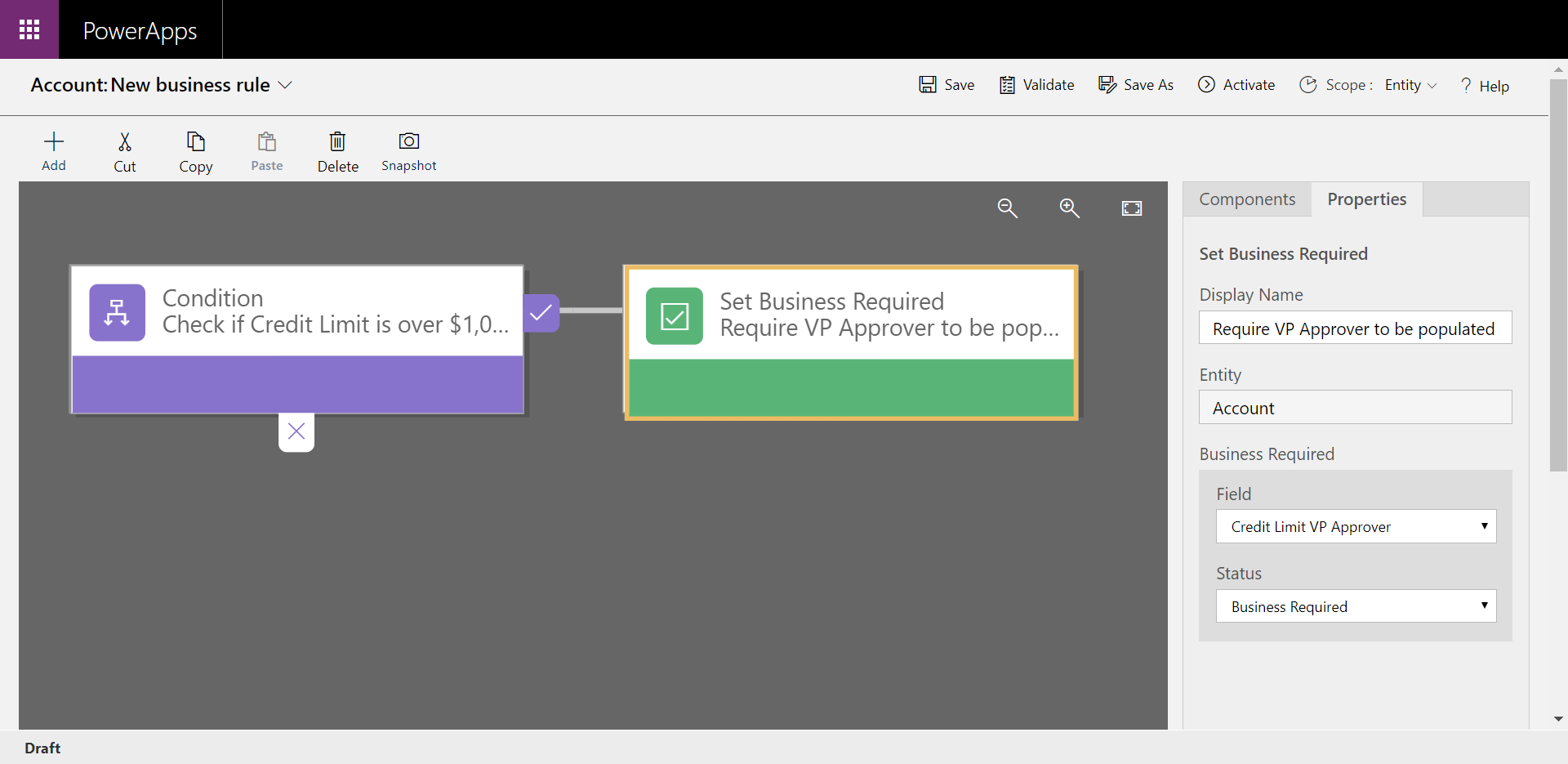
Copilot
Copilot was earlier called Power Virtual Agents. This is like GPT-4/Bing. Here, you just say in plain English what you want. CoPilot will create the power automate/app for you!
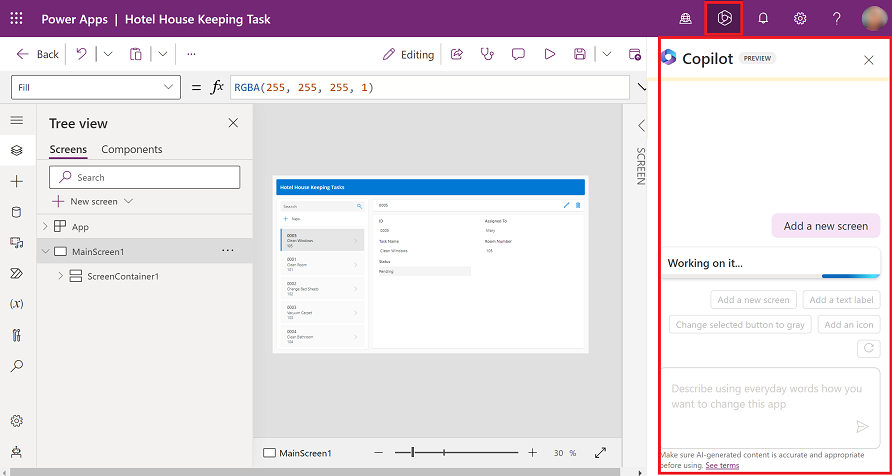
Power FX
This is the language of Power Platform. It’s like Excel formulas. It’s used in PowerApps, Dataverse, and Copilot Studio.

Power Platform and Microsoft Teams
All Power Platform components can be used from within MS Teams.

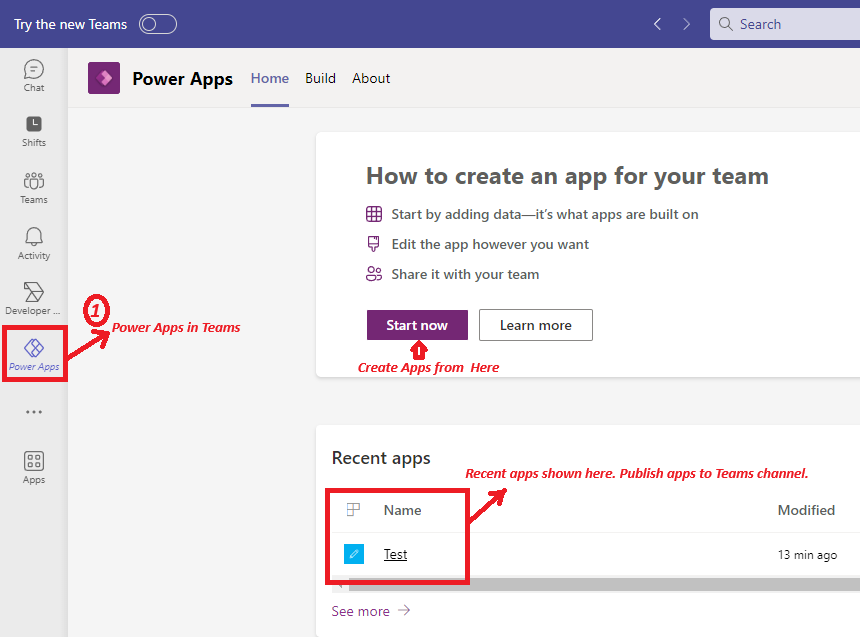
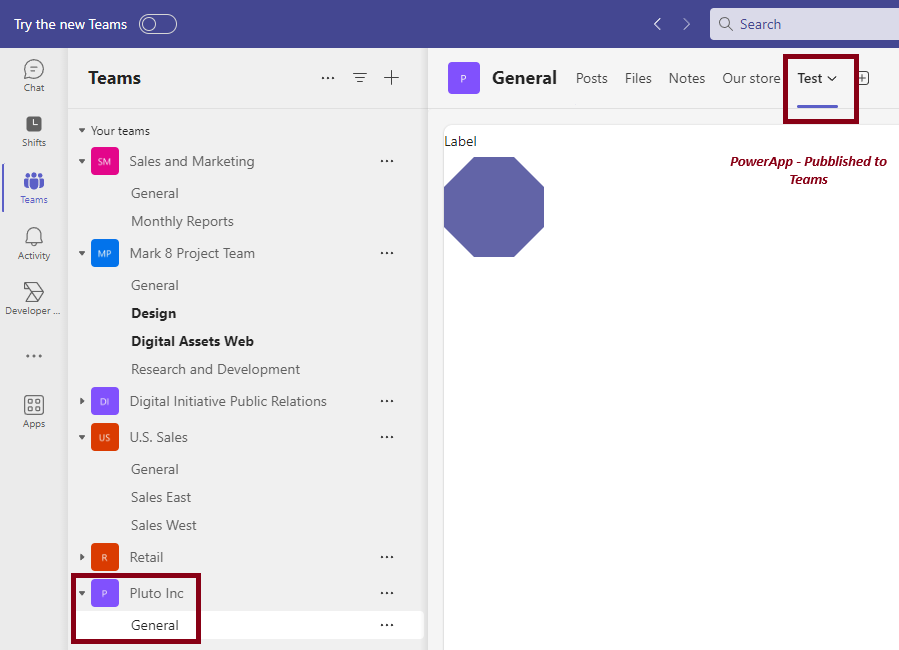
Power Platform & Dynamics 365
- Power Apps: All Dynamics 365 customer engagement apps are model-driven apps (built in PowerApps). The data for such apps is in Dataverse.
- Power BI: Can create reports from Dynamics 365.
- Power Automate: Business process flows are created using Power Automate.
- Copilot Studio: Call/SMS/Facebook Msgs -> Dynamics 365 Customer Service App -> Copilot -> Live agent.
- Power Pages: Self-support websites.
Power Platform and Azure
Power Platform and Azure offer countless ways to create end-to-end solutions. For instance, an airline project where:
- Azure API Management hosts a custom API for airline system communication.
- A coordinator handles notifications, assigns flights to Teams channels, and sends them to Power Apps.
- Azure Functions process Graph API calls from a storage queue, sending notifications to Teams and streaming events to Azure Event Hubs.
- Azure Bot Service powers a custom bot messaging service for flight updates in Teams.
- Azure Data Lake stores event data from Event Hubs for long-term retention and analytics with Power BI.
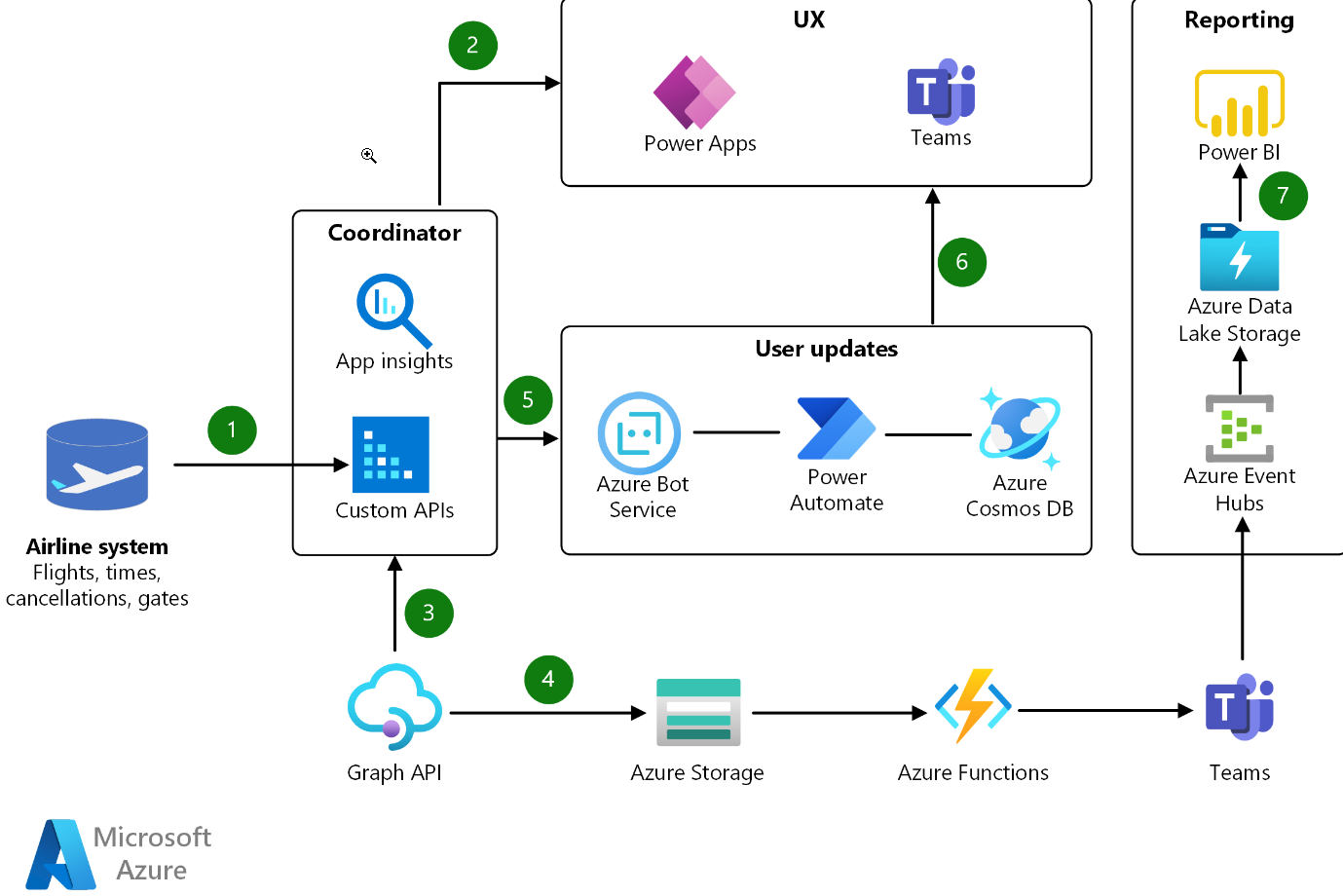
Dataverse OOTB features
Here is a picture showing OOTB features of Dataverse.
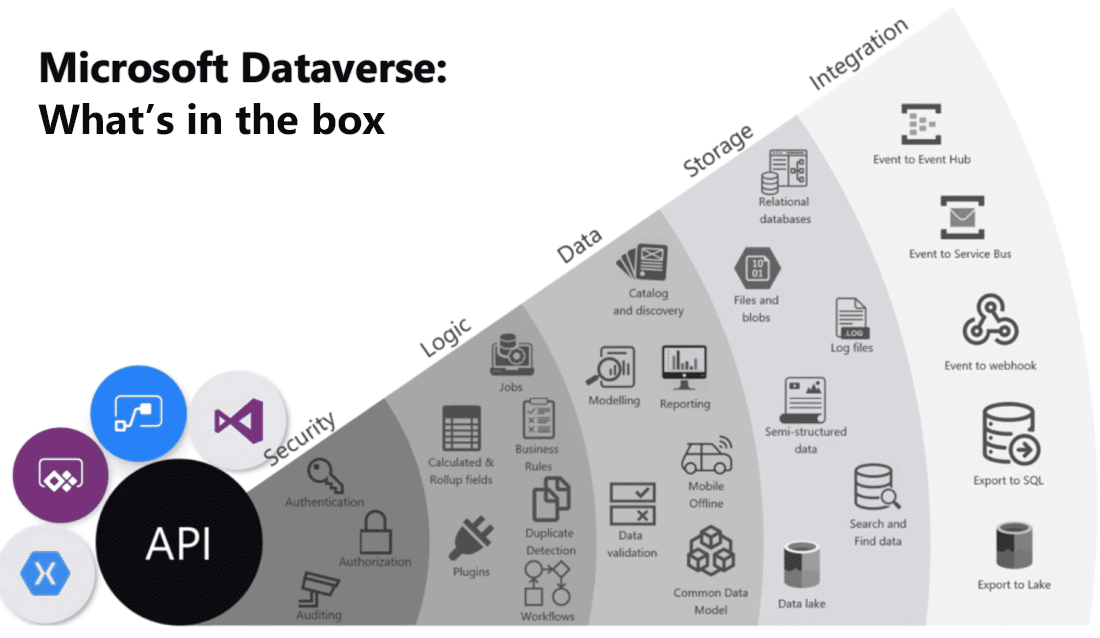
Dataflows
- ETL tool for Power Platform Ecosystem.
- Uses very little code.
- Uses Power Query (like Excel).
- No infra required, fully on cloud.
- No separate license, use Power BI / Power Apps license.
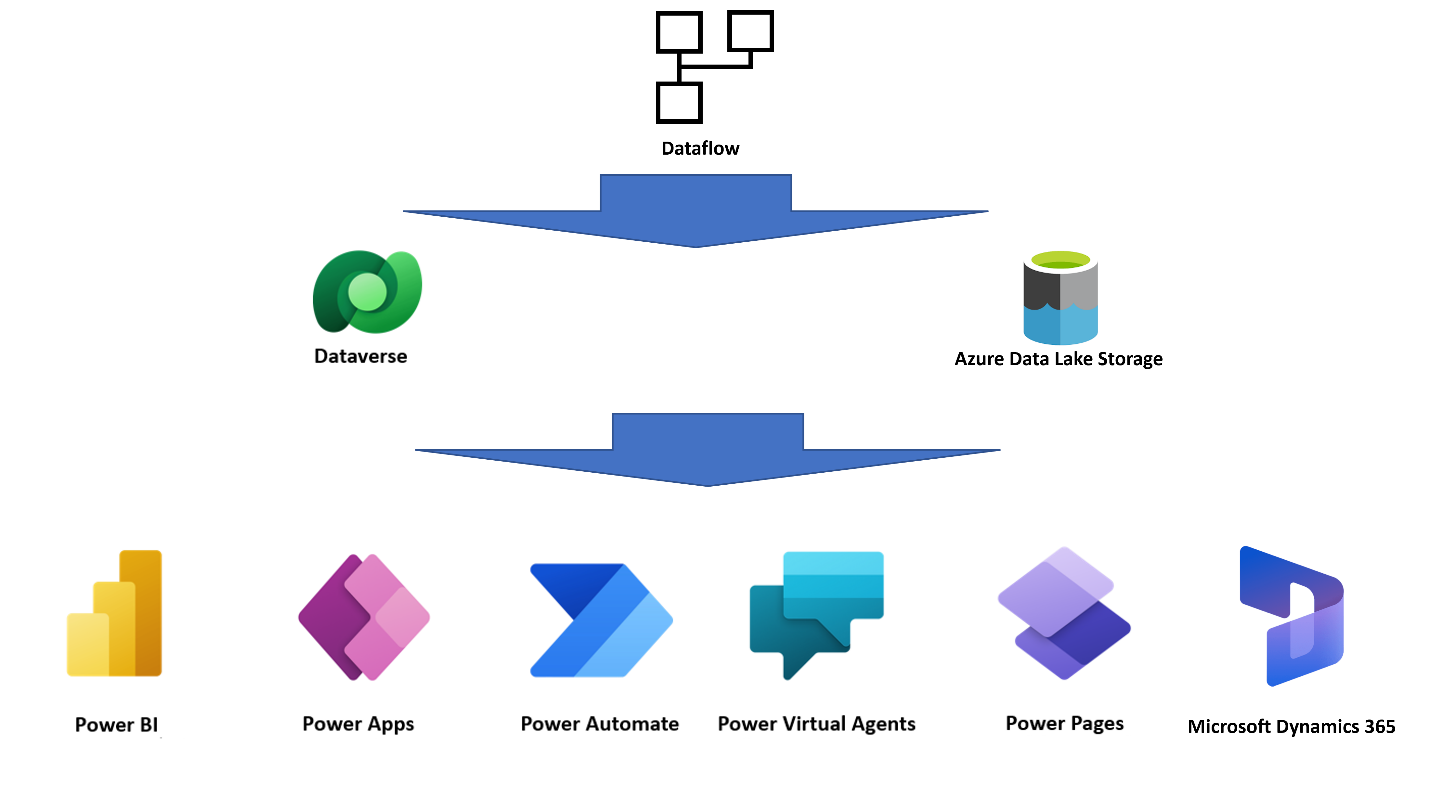
Common Data Model
Common Data Model is a ready-made collection of tables. For healthcare, you have a patient table and an admission table. With this, you don’t have to design tables and choose columns. Microsoft has partnered with industries like healthcare, automobile, and banking to create CDM.
Long story short: Use Common Data Model. Save yourself from complex data modeling tasks.
Data Sources | Triggers & Actions | Connector Types
Data Sources:
- Tabular: SharePoint, SQL Server, Dataverse
- Function Based: 365 Users, Azure Blobs
Connectors:
- Simply put, they link data sources to the Power Platform.
- Types: standard, premium, custom
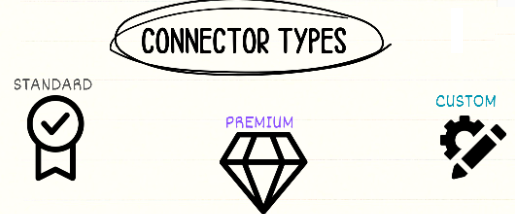
Triggers and Actions:
- Triggers: Start the flow in Power Automate, like a spark!
- Actions: Perform tasks or operations.

Dataverse Table Creation AKA Dataverse Model
“Does ‘Build a Dataverse model’ sound intimidating? Don’t worry, it’s simply about creating tables in the Dataverse database.”
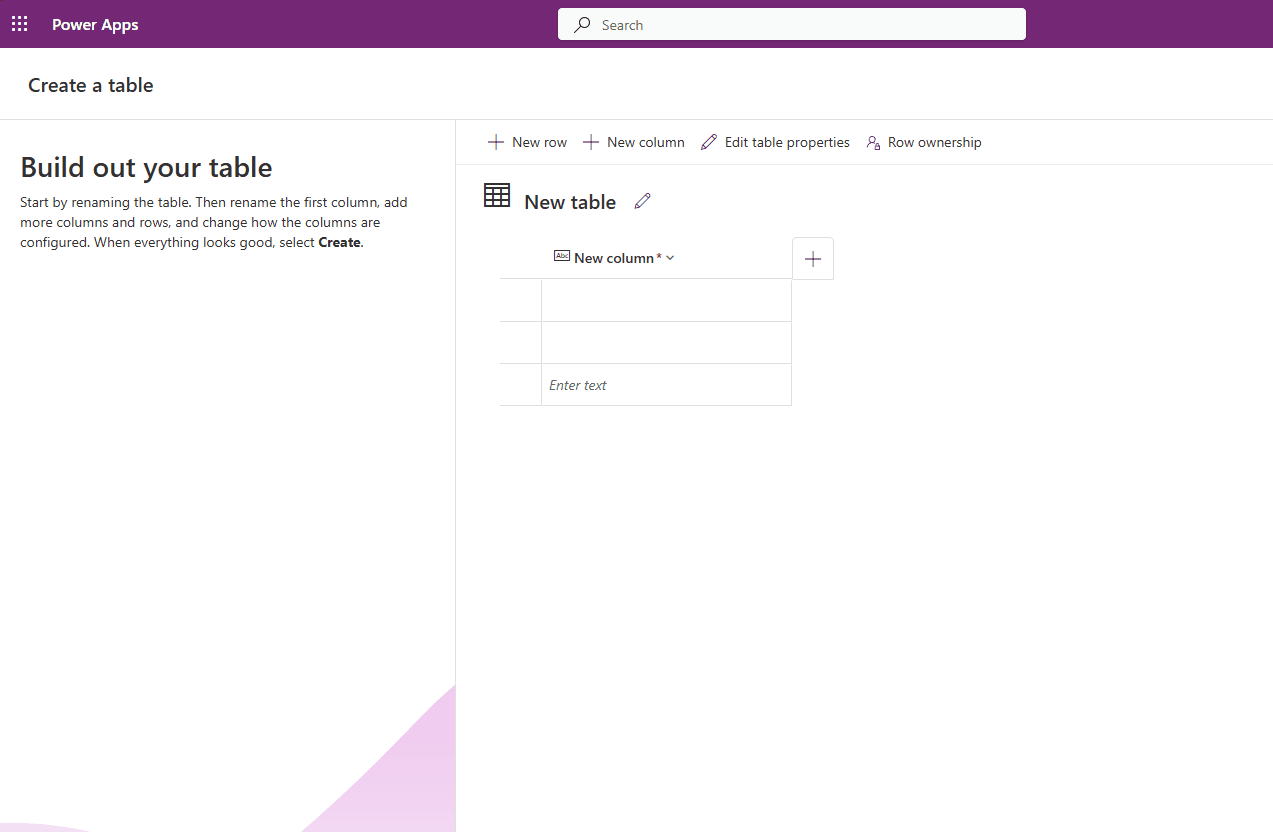
Dataverse vs. MSSQL
| Feature | Dataverse | MSSQL |
|---|---|---|
| Focus | Business Applications | Data Management |
| Schema | Flexible | Fixed |
| Data Types | Limited | Complete |
| Relationships | Built-in | Foreign Keys |
| Data Manipulation | User-friendly interface, low-code | T-SQL, Programming Languages |
| Security | Role-Based Access Control | Manual Setup |
| Table Types | Standard, Custom, Virtual, Elastic | Base, Temporary, Views, Table-Valued Functions |
| Views | Limited (Virtual Tables) | Traditional Views |
| Business Logic (Table Level) | Power Automate Workflows | Stored Procedures, Triggers |
| Business Logic (Column Level) | Validation Rules, Workflows | Constraints, Triggers |